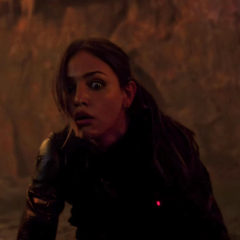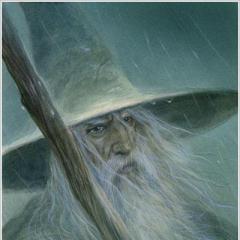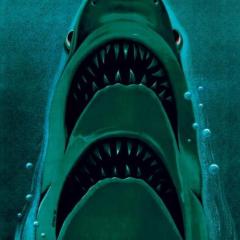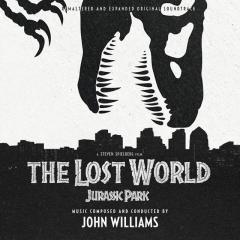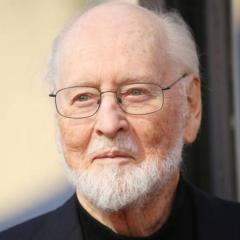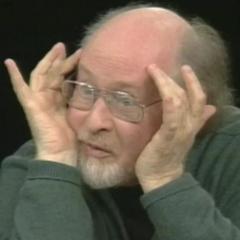Leaderboard
Popular Content
Showing content with the highest reputation on 18/11/13 in all areas
-

Howard Shore's The Desolation Of Smaug (Hobbit Part 2)
Sharkissimo and 2 others reacted to Dixon Hill for a topic
Ah yes, that I agree with, that his natural habitat is a different kind of score. But, I don't see this foray into opulent Hollywood scoring as a compromise or a sort of fluke. I think it was a stroke of fortune, and wouldn't in retrospect choose any other composer to replace him. The sound world that he created utterly embodies Middle-Earth in my mind, in a way that no one else could have, and that's not an indictment of the skill of any of his colleagues. It's an assertion that the filmmakers knew exactly what they wanted, and that Shore was the person to best deliver it. It's unique, I guess is what I'm trying to say. Horner and Williams are seasoned blockbuster composers but that's precisely the point - Shore delivered something new that they likely wouldn't have.3 points -
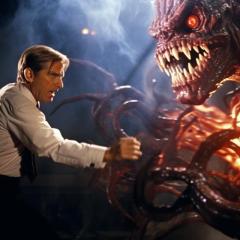
One year anniversary of my space themed orchestral work: ORBIT!
Joni Wiljami and one other reacted to karelm for a topic
Excuse the self promotion, but today marks the 1 year anniversary since my orchestral work, Orbit: A Symphonic Fantasy premiered. I'm especially proud of the comparison in this review since his music is what inspired me to become a composer in the first place: "It is no surprise that Karim's music, as evidenced by this rather enjoyable CD, bears the grand DNA of the epic film score. Orbit, with its inspiration from the final NASA space flight, lacks nothing in braggadocio and unstoppable confidence borne on high by the huge orchestral dynamism of John Williams and Howard Shore. The melodic material is inevitably bound at times to recall Star Wars, Superman and ET but the later pages take a tincture from Bernard Herrmann at his most subtle. Thus the music fades into a rainbow shimmer of strings underpinned by a deeply brooding bass. At the end Elmahmoudi cannot resist the epic valedictory full stop with the orchestra at full stretch. This could easily be seen as music to James Michener’s fine novel: Space (1982)." - Rob Barnett, Musicweb-International CD review (http://www.musicweb-international.com/classrev/2013/Mar13/Elmahmoudi_Orbit.htm) The premiere performance took place on November 18, 2012, with David Weiss conducting LA Dr Symphony Orchestra. I am thrilled and honored that this work has been embraced by audiences and welcomed by the California Science Center (permanent home of the Space Shuttle Endeavour) as part of their hourly IMAX presentations. To date, it has been heard by well over one million people and has been taken up by the JPL scientists of the Mars Curiosity Rover where it was used as a part of the one year anniversary of their highly successful mission to Mars! The origin of this work is based on my lifelong fascination with science and especially astronomy and I was fortunate to be able to merge my two passions into a musical composition. Orbit: A Symphonic Fantasy is a large scale fifteen minute adventurous and atmospheric orchestral work, with an epic and dramatic finale. To create this work, kindly commissioned by the Los Angeles Doctors Symphony Orchestra, I was inspired by explorers and visionaries throughout history. I wanted to create a tribute of sorts to the spirit of adventure, courage, and heroic exploration perfectly described by the sixteenth century explorer, Ferdinand Magellan: “The sea is dangerous and its storms terrible, but these obstacles have never been sufficient reason to remain ashore…It is with an iron will that they embark on the most daring of all endeavors ... to meet the shadowy future without fear and conquer the unknown." At NASA JPL with Bobak ("mohawk guy") Ferdoski. He is the mission director of the Mars Curiosity Rover and a great guy. Behind him are the first two pictures taken by Curiosity on Mars just after it landed during its insanely complicated "7 minutes of hell" descent. Concert performance (David Weiss conducting with me in the trombone section): And John van Houton on tuba right next to me. It is on Amazon and iTunes...and sorry for the self promo but was excited about the anniversary being today!2 points -

Howard Shore's The Desolation Of Smaug (Hobbit Part 2)
Bilbo and one other reacted to Dixon Hill for a topic
Forgive me, but... these points strike me as a tad clinical. Why can't contrapuntal lines jump? Why must modulation be not jarring? Why must there be intrinsic harmonic connection? It seems like you're judging these things based on guidelines for an exercise in a university harmony textbook. Precisely - that's part of the whole operatic principle. Of course, one could argue that silence might be better, but....2 points -

Howard Shore's The Desolation Of Smaug (Hobbit Part 2)
Bilbo and one other reacted to Dixon Hill for a topic
Don't hold me to cue names or track times, i'm too lazy to check. There are certain parts where Shore showed an imaginative flair, like the hardanger in TT or the layering of some of the choral stuff, the handling of the solo voices etc., then there are other parts that betray a rather conventional and compositionally not very interesting tendency to reach for grandiosity by just being LOUD via organ chords (long-held notes) and rather basic ostinati techniques, again often played by the most obvious instrumental groupings (the reverb tries to cover this at times, maybe?) often ofr minutes straight without much change even in tone and color...the same goes for his, imho, often monotonous suspense music that takes a rest for sometimes long stretches, again, organ chords, hardly a counterpoint or idea to handle the orchestral colors where it could have been crucial to make the music at least a bit more eventful. As i said, the tendency to flatten the musical complexities in movie music since the late 90's, as in other kinds of popular music, played a part in making this much more viable to the general public, or indeed film music fans, than it might have become 20 years before. That's all fair, and I wouldn't presume to try and change your opinion, but you'll forgive me if I feel the need to over-respond. So, harmony, counterpoint, orchestration. Ok. Well TTT and ROTK have their own riches in these departments, but I think FOTR is a brilliant enough score to stand on its own. First let's look at some interesting orchestrations, starting with the first minute of Keep It Secret, Keep It Safe. Initially simple tension in string clusters, but this erupts into a "dark" and "glassy" sheen of fluttering strings, winds, and celesta, underpinned by heavy, roving low strings and winds. This builds into the moment where Bilbo slips the ring off, marked by a soft brass chord, an upward sweep of violins, wind chimes/mark tree, and a light cymbal roll. Then Hobbity intervals in the low winds. Not quite monochrome. The Doors of Durin, during the Watcher sequence starting around 3:20. Something stirs under the surface of the lake, and the basses do slithery quarter tone glides with the contrabassoon accenting the target notes. Then the music for the discovery of the dead of Moria, and the Watcher's appearance itself. The aleatory here is obviously all over Shore's scores, but this is one of the most wild and unsettling appearances, with stabbing, non-vibrato trumpet clusters, wailing horns at the top of their registers, etc. How about Khazad-Dum, at 7:32? Those low strings jumping up into their higher registers is heart wrenching. Caras Galadhon, 3:35 to about a minute later, and a similar passage in The Fighting Uruk-Hai during the gift scene, 2:43 to 4:00 in that track. The main material is covered by ethereal, very still strings and women's voices, with glimmering arpeggios in the celesta and harps. Under this is a more sinewy line for mid-low range winds, brass, and strings, minus the brass/winds in the second excerpt. Again, anything but monochrome - these are all subtle and extremely effective colorations. Now, harmony. This is where you are most accurate about feeling Shore has "limited" resources, but "limited" in this case does not nearly equate to "few." There's quite a bit of movement by thirds, especially major thirds, which is a very Wagnerian sound and there's no mystery in his inclinations towards that. I'll also avoid talking merely about harmonization of themes or motives. However, consider the build up in Give Up The Halfling from 1:47 to 2:48. That's a skillful mounting of tension using relatively simple harmony and clusters, leading up to the statement of the wraith theme. The Doors of Durin again, but this time, the little moment for the reveal of the Doors themselves starting at 1:37. Luminous bitonality, with a sustained triad underneath a sequence of rising major chords. It's these small gestures where much of the ingenuity of these scores is apparent. The Dwarrodelf sequence in Balin's Tomb. I have no technospeak to tout this moment, it's just incredibly moving harmonically. This entire cue is harmonically very satisfying though, moving deftly between tonal areas of the opening moments' sad grandeur to the ominous reading of the book, the battle scene's dissonance, the airy relief that Frodo is still alive/Mithril reveal, and then the big statement of the Fellowship theme that spins off into a propulsive clusteral crescendo. The same gifting sequence from The Fighting Uruk-Hai mentioned above - these are a very facile few moments harmonically, gracefully sliding from one sonority to the next. Finally counterpoint. This is one thing that increases as you move in the scores chronologically. Shore has said that he didn't want to write with too much contrapuntal complexity at the start of the story - by the time you get to ROTK, you have some thrilling moments, particularly during the Pelennor battle, but in this first chapter he specifically said he was more reserved with writing that way as the story doesn't yet have the scope that really calls for it in his vision. That said, there are a few choice moments, fleeting though they may be. Gilraen's Memorial, 2:10 - 2:19, very delicate interplay between the clarinet and oboe. Khazad-Dum, 0:21 - 0:30, clashing lines with the horns playing declamatory phrases and the strings scurrying around similar pitches in counterpoint. The Road Goes Ever On… Pt. 1, 0:51 - 1:22, gorgeous dialogue in the strings. So... I obviously had a bit of time on my hands today. Don't misconstrue it as "fanboying" or anything like that, I just enjoy trying to encourage others to appreciate things that I appreciate.2 points -
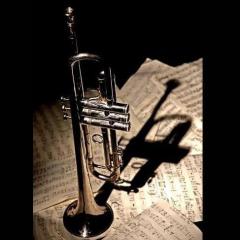
The Marvel Studios Fanfare by Brian Tyler
Joni Wiljami and one other reacted to BTR1701 for a topic
Am I the only one sick of thundering electronic drums overshadowing everything in soundtracks these days? Every single soundtrack sounds the same to me. Galloping drums, simplistic themes (if the composer even bothers with themes), and fluttering string ostinatos. These scores can almost be copy-pasted from one film to the next. And whoever mixed that clip above needs his head checked. When the brass section and the violin section sound equally powerful, you've done something wrong.2 points -

One year anniversary of my space themed orchestral work: ORBIT!
Joni Wiljami reacted to karelm for a topic
Thanks! I forgot to mention, the conductor was David Weiss who played on a few films you might have heard of...1941, Close Encounters, E.T., Far and Away, Hook, Temple of Doom, War Horse, not too shabby a list.1 point -

Howard Shore's The Desolation Of Smaug (Hobbit Part 2)
Joni Wiljami reacted to ChrisAfonso for a topic
I greatly enjoy Shore's Middle Earth scores and see that he put a lot of thought into them, resulting in a lot of beautiful, suspenseful, rousing and/or scary passages. And one thing you can really say is that they are really homogenous, not in the sense of everything sounding the same, but everything sounding like one big developing work. I think this is a direct consequence of his broad-stroke style to melodic writing and orchestration. A composer used to writing much more instricate counterpoint or even "Mickey-Mousing" (to mention the extreme opposite) would have had much more trouble to keep the sound coherent over so long an opus. I agree to what has been said before, Shore really has a very different style than the usual suspects of epic fantasy scoring, and I like that this sets his scores apart from others and makes them instantly unique. But I have to agree with Publicist, that Shore often has serious limitations in writing effortless, organic harmonic/melodic progressions, subtle instrumentation and a lively texture, as much as it mostly works to his advantage in the case of these scores (as mentioned above). Between the high points, there are countless passages of simple blocky triads (usually in the low brass or strings) repeated for suspense, minute-long stretches of increasing tension scored via chromatically rising almost-full-orchestra block chords (taaaaaaaaaaaaaaaaaaaaaa ta Taaaaaaaaaaaaaaaaaaa ta TAAAAAAAAAAAAAAAAAA TA TAAAAAAAAAAAAAAAAAAAAAAAAAAAAA!), which becomes so formulaic that I wasn't really surprised about Shore's Kong rejection after hearing the exact same thing in the preproduction diary on those scoring sessions, and simplistic melodic ideas (mind you, not nearly all of them - but not too few, either). The strength of those simple melodies lies in the variation and interconnection throughout the scores, which is the reason I really enjoy discovering those and listening to the slow development. When he writes counterpoint, similarly to his harmonic progressions, it often feels forced - laboriously crafted to mostly fit together, but not exactly organic. Again, I feel I have to interject this, I enjoy many of those passages, but I see the limitations there - repeated sudden jumps in a counterpunctual line, jarring modulations that are only motivated by fitting to the underlying harmony... And regarding the comparison with Wagner earlier: Wagner uses to modulate a lot (in later works often constantly) and thus moves from one key into the other. Shore often jumps without any established connection. Yes, he also uses mediant relations a lot, and this is a nice trademark of his style, but there are also places where it just seems that there is no intrinsic harmonic connection. A loaded topic, I know. I just enjoy this music for what it is, for what it isn't, and for what it evokes - there are so many passages in the trilogy, and some again in the first Hobbit score (and I hope many to come) that move me profoundly, I can't even start to count them (and that's not only because of the connection with the source material, I was in love with "The Ring goes South" and the Dwarrowdelf reveal as soon as I got the first CD back then, two weeks before the film).1 point -
Well, one might say that should be a good pointer why it is no great music, but let's leave it at that... Well, we might also use that logic with Mozart, Goldsmith, Beethoven, Williams, etc., but lets leave it at that...1 point
-

Howard Shore's The Desolation Of Smaug (Hobbit Part 2)
Bilbo reacted to Dixon Hill for a topic
I don't think i would disagree on the choices (i even mentioned GM), and Shore is hardly a slouch, but the proof is in the pudding, and there still so much more simple/bombastic stuff that to me doesn't approach any of these heights. Thank you for providing examples that i may have noticed myself, but what about all the loud stuff? Do you really think that's all layed out like that on design and Shore easily could have written Goldenthal-like complexities into it? I find that rather hard to believe. Well, that's something that neither of us can ever really know. All I know is that he is a trained, experienced musician. I'm not sure what you mean by "loud stuff" either, though it's difficult to argue that his action music is for everyone if that's what you mean. In those sequences, like the rest of his work, he is very reserved with his highly complex writing. It's probably worth also taking into account his philosophy of scoring, which is very informed by operatic principles. He wants the music to support, but not to stick out, so that accounts for his more subtle approach barring those moments where he feels dramatically justified in letting loose. It's like Mozart setting a recitative very simply, and then writing flashy for an important dramatic moment. But I think where we actually differ is that you want to compare it all to something - Goldenthal, for example. I'm satisfied to just take a composer's style and voice as it stands. And if this reads to you as defensive drivel, well, what can I do?1 point -
Don't worry Karol. There will always be few of us easily duped JW fans here who fall for this kind of regurgitated material from the Maestro.1 point
-
BTW, I hope that cue has harpsichord in it, I know that most of the action cues have Harpsichord in them, so I just picked one at random. BTW that is one of KK's favorit scores, he especially loves the "Mooordooor, Mooordooor" chanting, and the Blaster Beam.1 point
-
Strange, Desplat, in my opinion, is one of the most striking film composers working at the moment. Ah well... Karol1 point
-
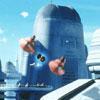
Music about Hope
Joe Brausam reacted to Bespin for a topic
For me some parts of E.T. original album will always represent feelings of hope, love and optimism. In Classical Music, I would go with Brahms' German Requiem, because it's truly a Human Requiem, a Hope Requiem. Brahms was an agnostic and a humanist. He used biblical texts for artistic reasons, the passages who relate to this life and to those who grieve. Two suggested versions : - Watts, Degout, London Philh. O & Ch., Nézet-Séguin - Margiono, Gilfry, Monteverdi Ch., Orch. révol. et rom., Gardiner; Ein deutsches Requiem, Op. 45: Ihr habt nun Traurigkeit by Johannes Brahms on Grooveshark1 point -
I read that as "Augie's great tits". Sorry.1 point
-
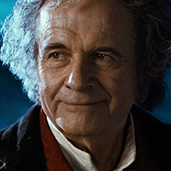
Star Wars Episode VII: The Force Awakens (JJ Abrams 2015)
Smeltington reacted to BloodBoal for a topic
I love it.1 point

